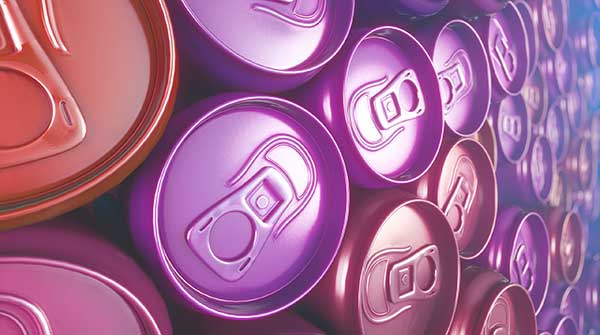Or is a sugar tax just another revenue stream for cash-strapped governments?
 Sugar taxes are gaining momentum worldwide. A study published in June by the Journal of the American Medical Association revealed the existence of 118 sugar taxes worldwide, including 105 national taxes and 13 subnational taxes, impacting 51 percent of the global population. It’s worth noting that this approach receives substantial support from the World Health Organization (WHO).
Sugar taxes are gaining momentum worldwide. A study published in June by the Journal of the American Medical Association revealed the existence of 118 sugar taxes worldwide, including 105 national taxes and 13 subnational taxes, impacting 51 percent of the global population. It’s worth noting that this approach receives substantial support from the World Health Organization (WHO).
Many citizens are already subject to this “sin tax” policy, primarily aimed at discouraging the consumption of sugar-rich food products. Over the past few years, some Canadian provinces have decided to follow suit.
For instance, in April 2021, British Columbia imposed a seven percent provincial sales tax on sugary beverages. The primary aim, according to the province, was to discourage consumers from buying high-sugar foods. Yet, even after two years, the BC government has provided little substantive evidence of tangible outcomes of the tax or conducted comprehensive assessments on the tax’s effect on product consumption.
| Related Stories |
| Sugar-coating a sugar tax won’t make it any more palatable
|
| A tax on sugar-sweetened beverages not the answer to obesity
|
| Newfoundland’s pop tax is nothing more than a (hidden) tax grab
|
On September 1, 2022, Newfoundland and Labrador also implemented a sugar tax on beverages. However, unlike British Columbia, Newfoundland opted for a more subtle approach by imposing the tax at the manufacturer level rather than at the retail level. But like in BC, the tax has not yet undergone a thorough evaluation of its effectiveness. Data regarding consumption or sales simply remains unavailable.
However, the province’s Department of Finance has announced that the tax generated $11 million in revenue over the past year, 22 percent more than anticipated.
The province claims that these funds will go towards supporting programs like a continuous glucose monitoring pilot, a tax credit for physical activity, and the development of leisure, physical activity, and sports. Although these goals are commendable, it’s unclear whether the funds will genuinely be directed towards achieving them.
Scientific studies indicate that municipalities, particularly in the United States, that have imposed such taxes have shown greater success in meeting spending obligations linked to sugar taxes than other government levels. Oakland, Philadelphia, and Berkeley serve as good examples. Nevertheless, some provinces or states may be swayed by conflicting political priorities, with the collected funds becoming entangled in the intricacies of public finances.
Ultimately, it appears that the sugar tax in Newfoundland and Labrador has had little impact on consumer habits. According to a study from the University of California to be published in October, only a fraction of the sugar tax imposed on manufacturers is passed on to consumers. Retail prices barely change, with most of the tax being absorbed by the supply chain. Moreover, available scientific evidence does not consistently demonstrate that sugar-sweetened beverage taxes have either encouraged increased purchases of healthier beverages or led to an overall reduction in the consumption of sugary drinks.
In essence, the government of Newfoundland and Labrador seems to have introduced this tax for the sake of taxation itself – an ill-conceived notion. For agri-food businesses, dealing with a moralistic state represents a significant risk, as they may fear becoming the target of punitive policies in the future, discouraging private sector investments. Newfoundland and Labrador is in dire need of investment.
Taxing food products in grocery stores, regardless of the method chosen, is a complex endeavour. The most effective tools for reducing sugar consumption are education and labelling. Education, in fact, according to IBISWorld, has already contributed to a decline in soft drink consumption in Canada since 1998, when per capita consumption was 117.4 litres.
Consumption was already declining before sugar taxes came along. Today, consumption stands at 48.4 litres per person – a remarkable difference. Furthermore, new rules for nutritional labelling, which will take effect in 2026, will compel manufacturers to affix a label to products high in sugar, fat, or sodium. This will provide consumers with relevant information to make healthier choices.
Taxing for the sake of taxation can open the door to state abuses. It is important to seek balanced, evidence-based approaches to encourage healthier dietary choices.
Dr. Sylvain Charlebois is senior director of the agri-food analytics lab and a professor in food distribution and policy at Dalhousie University.
For interview requests, click here.
The opinions expressed by our columnists and contributors are theirs alone and do not inherently or expressly reflect the views of our publication.
© Troy Media
Troy Media is an editorial content provider to media outlets and its own hosted community news outlets across Canada.


